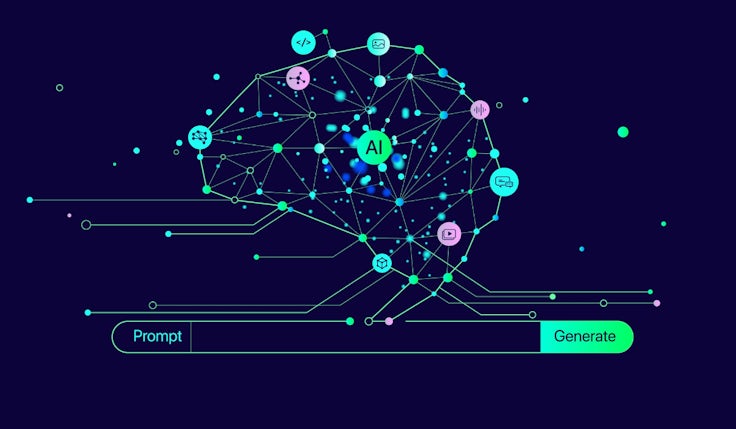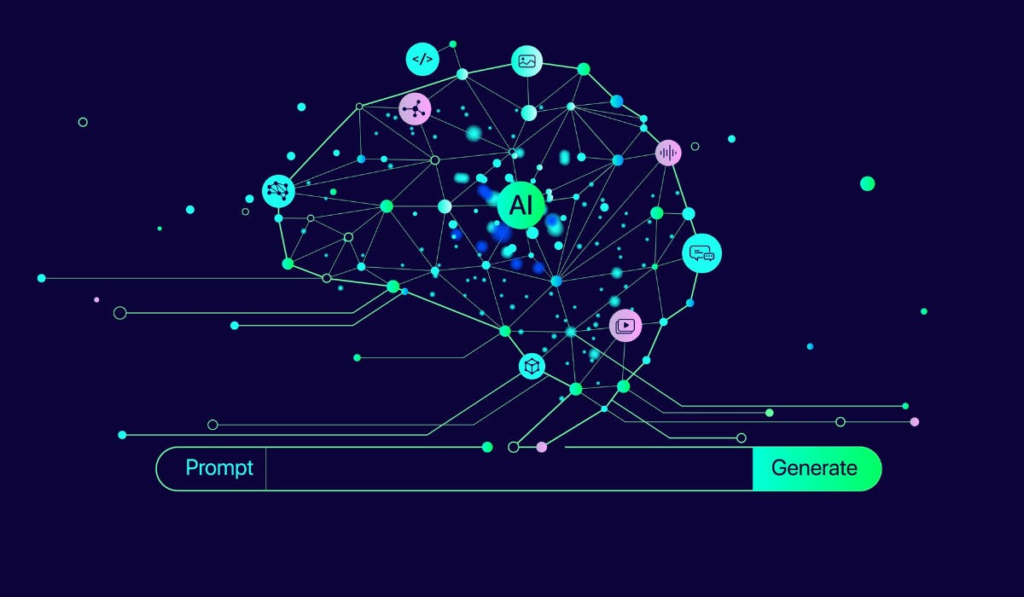
While the role for artificial intelligence in marketing remains up for debate, data suggests a significant proportion of marketers are already using AI to optimise everything from campaign creative to market research.
According to Marketing Week’s 2025 Language of Effectiveness research, in partnership with Kantar and Google, over half (57.5%) of the more than 1,000 brand marketers surveyed are already using AI to generate content and creative campaign ideas.
The first time Marketing Week has specifically measured the uptake of AI for generating creative, this is the most popular current usage of artificial intelligence among the Language of Effectiveness sample.

While the role for artificial intelligence in marketing remains up for debate, data suggests a significant proportion of marketers are already using AI to optimise everything from campaign creative to market research.
According to Marketing Week’s 2025 Language of Effectiveness research, in partnership with Kantar and Google, over half (57.5%) of the more than 1,000 brand marketers surveyed are already using AI to generate content and creative campaign ideas.
This is the first time Marketing Week has specifically measured the uptake of AI for generating creative, and it is the most popular current use of artificial intelligence among the Language of Effectiveness sample.
Close to two-thirds (63.1%) of B2B marketers report already using AI for creating content and campaign ideas, higher than their B2C counterparts at 51.7%.
SMEs (250 employees and under) are more likely (63.9%) than their peers in large firms (54.1%) to already be utilising artificial intelligence for content creation and developing creative ideas.
Half of CMOs ‘unhappy’ with measurement of creative effectiveness
Returning to the total sample, almost half (48.6%) of respondents are already using AI for market research, up from 46.2% in 2024.
Over two-fifths (44.7%) are currently using AI to produce multiple variants of campaign assets (flat on last year at 44.2%), while 43% are using such tech for audience targeting and segmentation. This is again similar to 2024 levels, when 42.1% reported already using AI to segment and target their audience.
Some 34% of respondents are using AI to plan media spend prior to campaign launch, down from the 41.4% who said the same last year.
Under a third (32.3%) of the 2025 sample are already using artificial intelligence to test creative prior to a campaign launch, versus 40.4% in 2024. Some 31.1% are currently integrating AI into their market mix modelling, again down on the level reported last year (40.7%).
To a lesser extent, marketers are already using AI to optimise mid-campaign in terms of both media (30.4%) and creative (27.7%). These numbers are lower than the levels reported last year for optimising media (41.1%) and creative (43.7%) mid-campaign.
AI on the rise in B2C
As stated above, nearly two-thirds (63.1%) of B2B marketers are already using AI to create content and generate campaign ideas, versus just over half (51.7%) of their B2C counterparts.
B2B marketers (30.4%) are also more likely to already be using AI to optimise creative mid-campaign compared to those working in B2C (24.6%).
However, the data suggests beyond the development and optimisation of creative, B2C marketers are more likely to already be implementing artificial intelligence in their day-to-day lives.
More than a third (35.6%) of marketers in consumer-facing businesses are already using AI within market mix modelling, versus less than two-fifths (19.6%) of those working within B2B. B2C marketers are also far more likely to be using AI to optimise their media spend mid-campaign (38.1%) than their B2B peers (18.9%).
Prior to campaign launch, more than two-fifths (41%) of consumer-facing marketers are already using AI to plan their media spend, compared to a quarter (25.2%) of those working in B2B. Similarly, while a quarter (25%) of B2B marketers are investing in artificial intelligence to test creative pre-launch, over a third (34.7%) of their B2C counterparts are doing the same.
Over half (52.1%) of the B2C sample are already using AI in their market research, which is less common (41.4%) among B2B respondents. A similar split appears when reporting current usage of AI to produce multiple variants of campaign assets (50% B2C versus 42% B2B).
Well over two-fifths (44.4%) of B2C marketers are currently using artificial intelligence for targeting and segmentation, which is happening to a lesser extent (37.5%) within B2B brands.
Split by size
Again, as reported above, marketers working in smaller businesses are more likely (63.9%) than their peers in large firms (54.1%) to be already using AI to develop creative content. The Language of Effectiveness data also suggests they are slightly more likely (30.1%) to be optimising creative mid-campaign via AI than those in large firms (26%).
There are some uses of artificial intelligence where adoption is more widespread in bigger businesses. Over a third (36%) of marketers in large companies are already using AI to optimise their media spend mid-campaign, versus a fifth (20.6%) of those in SMEs.
When it comes to media spend, almost two-fifths (38.4%) of big brands are already using AI to plan media budgets prior to launch and optimise spend mid-campaign (36%). By comparison, just a quarter of SMEs (25.2%) are already using AI to plan their media spend pre-launch and an even smaller number (20.6%) are utilising the tech to optimise mid-campaign.
Large firms are also more likely to be using AI to test creative prior to launch (36.1%) than smaller businesses (25.2%), with the data finding a similar split with regards to using artificial intelligence for market mix modelling (33.5% large organisation versus 25.8% SME).
When it comes to research, targeting and segmentation, a similar level of adoption emerges regardless of business size. Almost half of small businesses (47.1%) and large corporates (49.1%) are using AI in market research. Such tech is also proving popular for targeting and segmentation among more than two-fifths of SMEs (43.9%) and large organisations (42%).
An identical percentage of small firms (44.5%) and big businesses (44.4%) are already using AI to produce multiple variants of campaign assets.
Regardless of type or size of business, the data reveals high current levels of use of AI, with marketers particularly comfortable using artificial intelligence to develop and generate creative content.
Marketing Week will continue its reporting from the Language of Effectiveness research in the coming weeks. Click here to download our report on the data.


